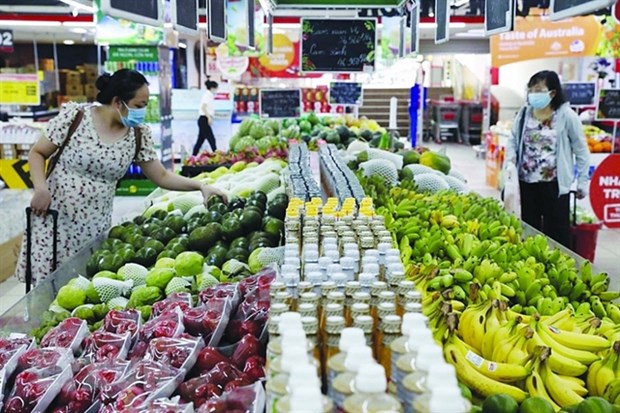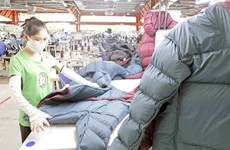Fiscal policies work to keep inflation under control
Fiscal policies have worked to promote economic growth and control inflation in the first months of this year, Deputy Minister of Finance Vo Thanh Hung said, adding that close watch would be placed on the market to ensure inflation was within the National Assembly’s target.
 To control inflation below 4 percent as set by the National Assembly, it was necessary to reduce cost-push impacts, increase the supply of goods and prevent inflationary psychology. (Photo: VNA)
To control inflation below 4 percent as set by the National Assembly, it was necessary to reduce cost-push impacts, increase the supply of goods and prevent inflationary psychology. (Photo: VNA)Hung pointed out that the rapid increases in global commodities prices from the beginning of this year significantly affected the domestic market with skyrocketing food and raw material prices.
The US’s inflation surged to a new four-decade high of 8.5 percent in March from the same time a year ago, driven by skyrocketing energy and food prices.
In Vietnam, inflation averaged 1.92 percent in the first quarter, a moderate increase, Hung said, adding that fiscal policies focused on reducing taxes and fees to support the economy worked to control inflation.
Hung pointed out that the taxes and fees reduced in 2022 would total around 88-90 trillion VND.
He added that the ministry was going to propose a Government extension of three, six and nine months to pay land fees and taxes estimated at around 135 trillion VND to support enterprises.
To control inflation below four percent as set by the National Assembly, it was necessary to reduce cost-push impacts, increase the supply of goods and prevent inflationary psychology, Hung said.
A close watch would be placed on the market developments, especially on necessary goods and services, to timely raise appropriate policies.
It is also important to promote products to increase the supply of goods in the domestic market and ensure market circulation.
According to Nguyen Minh Cuong from the Asian Development Bank (ADB), Vietnam’s inflation will remain under 4 percent, adding that the Vietnamese Government’s ability to control prices remained flexible, such as reducing environmental protection tax on fuel.
Throughout 2022, the biggest risk to inflation is external factors. From 2023, when the economy recovers, the increase in domestic demand would weigh on inflation.
ADB forecast Vietnam’s inflation at 3.8 percent this year and 4 percent in 2023.
Meanwhile, Standard Chartered recently forecast Vietnam’s inflation this year to exceed the expected rate of 4 percent and even climb higher in the following years./.












